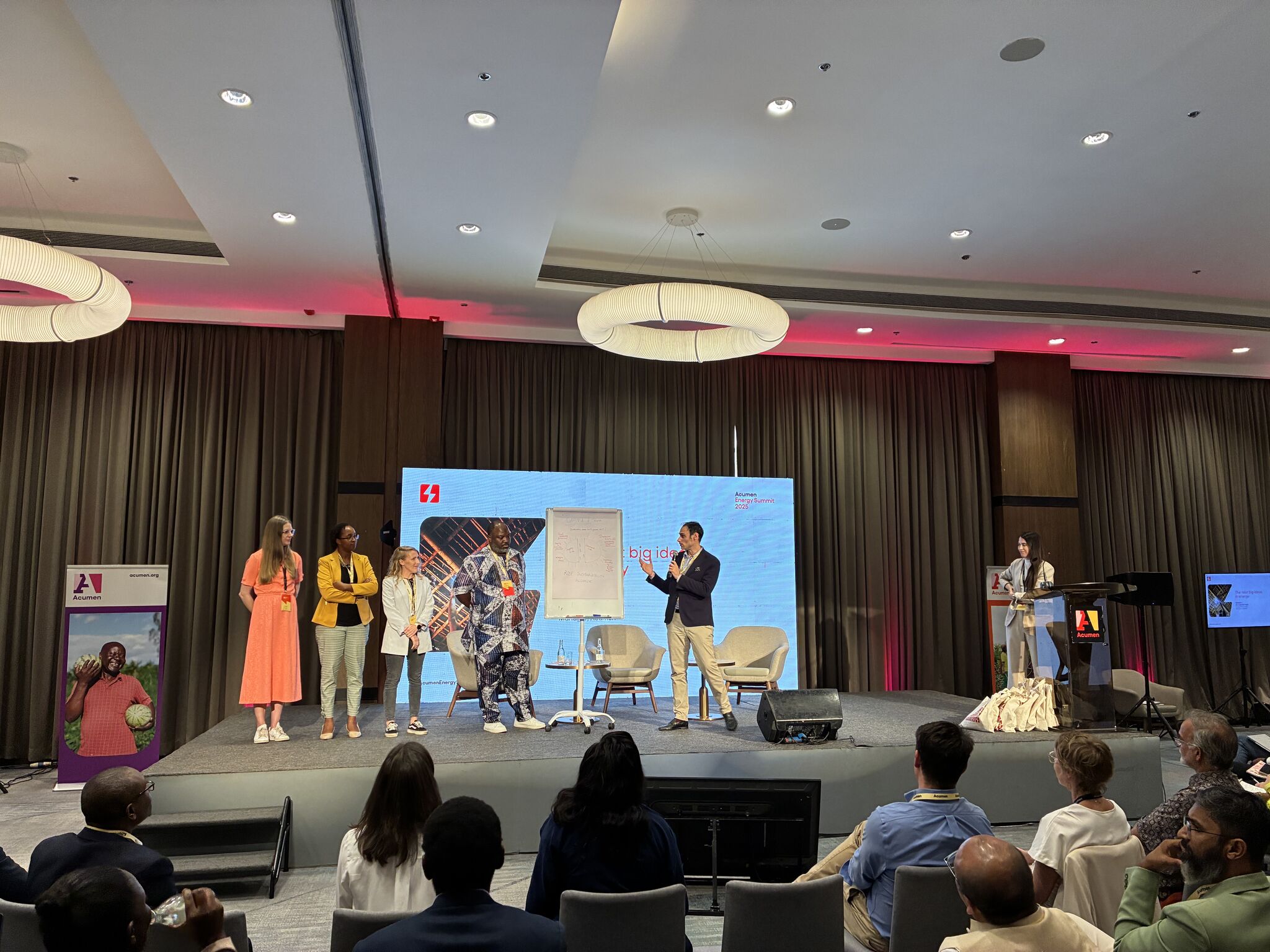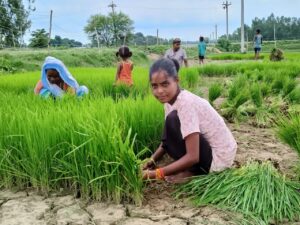Recently, our Chief Operating Officer, Audrey Fillon, represented Oorja at the 5th Acumen Energy Summit in Nairobi — an engaging gathering of entrepreneurs, funders, and institutions dedicated to advancing energy access in the world’s most underserved regions.
Across every conversation, the message was clear: we need smarter tools, stronger collaboration, and more intentional design if we’re serious about long-term impact. As Audrey shared upon her return, “It was one of the most thoughtfully curated convenings I’ve attended — valuable networking, inspiring facilitated conversations, and deep thinking all in one place. That’s not an achievement to take for granted.”
Here are some key insights and reflections that Audrey brought back:
1. Customer-Centric Models Need More Than Good Intentions
Even the most inclusive, well-designed business models continue to face headwinds from:
- Oversubsidisation distorting customer expectations
- Misunderstandings around ownership of energy assets
- Foreign exchange liquidity gaps that disrupt financial planning
These structural issues limit companies’ ability to scale sustainably, and in turn, hinder customer trust, credit-building, and long-term reliability of services.
At Oorja, where we serve farming communities through pay-per-use solar irrigation and climate-smart farming solutions, we constantly navigate these realities. The path to scaling must also be a path to stability, for the enterprise and the end user alike.
2. Results-Based Financing Is a Tool — Not a Goal
The Summit highlighted the growing importance of Results-Based Financing (RBF) — not just as a way to disburse capital, but as a catalyst for collaboration and long-term thinking. RBF, when designed well, can build value perception, encourage local participation, and pave the way for post-subsidy sustainability.
3. Carbon Revenues Are Key to Affordability for Smallholder Farmers
When it comes to pricing services for rural customers — especially smallholder farmers — it’s a delicate balance between affordability and business sustainability. Financing helps, but it’s rarely enough on its own.
We discussed how carbon revenues, particularly through mechanisms like Distributed Renewable Energy Certificates (DRECs), can be critical in bridging the final affordability gap. At Oorja, we’ve begun piloting DRECs and see strong potential in this emerging stream — not only for organisational sustainability but eventually for revenue-sharing models that benefit farmers directly.
Other innovative financing instruments — such as first-loss guarantees, FX protection, and flexible models like revshare and revenue-based debt — were also spotlighted as essential to unlocking scale in rural markets.
4. Co-Design Is the Future of Agri-Energy Financing
A highlight of the Summit was the Agri-Energy Nexus workshop, where Audrey participated in co-designing a fictional fund alongside other entrepreneurs and investors. The exercise fostered open, often difficult conversations around:
- What “acceptable” Internal Rates of Return (IRRs) look like in last-mile contexts
- How much flexibility funders are truly willing to offer
- The real risks and trade-offs of operating in hard-to-reach markets
These are the kinds of dialogues that shift power dynamics — creating space for mutual understanding and better-aligned expectations between capital and enterprise.
5. Peer Learning Across Regions Is Invaluable
Oorja operates in rural South Asia, but many of the challenges we face — from building resilient field teams to closing the ag-energy value chain — are shared across the Global South. At the Summit, it was immensely valuable to engage with peer enterprises from across Africa. The cross-regional insights remind us that while contexts differ, our collective mission is aligned.
A Final Word on Thoughtful Convening
As someone who also wears the hat of an event producer, Audrey was especially struck by the quality and care with which the Acumen Energy Summit was designed. It wasn’t just another conference — it was a meaningful space where every minute was crafted to foster depth, connection, and co-creation.
We’re grateful to Acumen for inviting Oorja to this vibrant and timely gathering. And we’re more committed than ever to pushing the boundaries of what’s possible in clean energy and agricultural livelihoods — alongside an ecosystem of partners equally driven by long-term impact.
Photo Credit: Acumen



